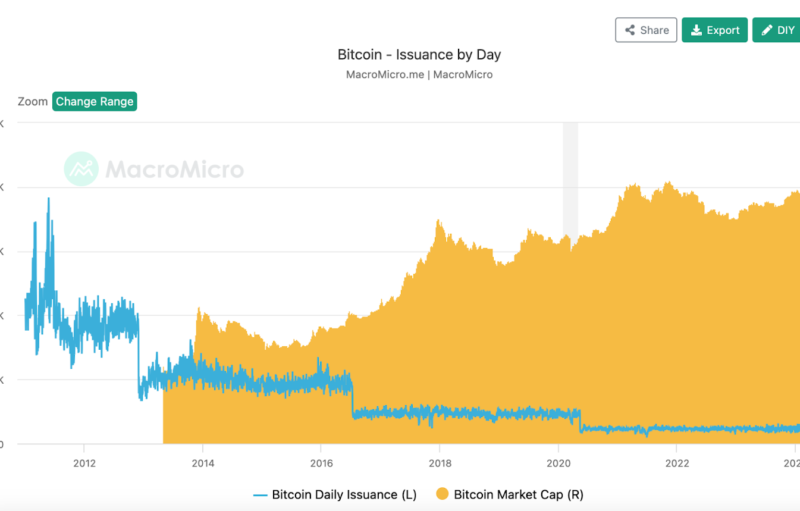
I imagine long ago there was a time when neither verbal nor written language existed for humans. Hand gestures and other physical cues were as good as our ancestors had it. Perhaps the sign for thirsty meant pinching one’s own tongue. Or the sign for hungry meant stuffing one’s hand in one’s own mouth.
**The following article is an opinion piece published on July 2, 2013, and written by Seth King. “Protocol, Networks, Law, and Anarchism” first appeared on the Daily Anarchist and is reprinted here for historical preservation. Bitcoin.com is not responsible for or liable for any opinions, content, accuracy or quality within the Op-ed article.**
Misunderstanding was rampant. Quality communication was scarce. And productivity was low. But since the beginning, mankind has been slowly improving its communication skills. Along came verbal and written languages and with it increased understanding. With increased understanding, so too came increased productivity.
Protocol
When two or more individuals come together and speak a common language it can be said they are obeying a certain protocol. So long as none of the individuals pervert the pre-defined meanings of words there is understanding. If another person attempts to ascribe false meanings to the English language, or perhaps even speaks a foreign language to a group of English only speakers, that person can be said to be disobeying protocol. The protocol, in this case, is the English language.

Networks
When many individuals obey the same protocol while communicating it can be called a network. There are networks of English, German, French, and Spanish speakers, and so on. You might say that large groups of individuals within a geographic region all speaking the same language is a local area network. Generally speaking, it is in an individual’s own self-interest to have his protocol as widely adopted as possible. If one’s native language is too small relative to the rest of the world, the individual will likely need to become multilingual. In order to increase maximum communication and understanding, eventually all individuals will likely obey the same language protocol.

Assuming you’ve followed me so far, the question I then have for you is which language should be the global protocol? Should it be English, Spanish, or Chinese? Perhaps something else? The truth is there are two answers to this question. The first answer is that it is totally arbitrary. There is no right or wrong language. Assuming everyone in the world can obey the same protocol, it doesn’t matter one iota whether it’s Spanish or English being spoken. The second answer is that billions of people have their preference and are vying for ubiquity, but only one is likely to come out on top. Which language should “win” is totally a matter of preference to each individual. Morality is simply devoid from this debate.
Now, this isn’t to say that every person on the planet will be forced to stop speaking the language of their local area network. It merely means that in order to easily communicate with everyone else on the planet, one protocol will have to be obeyed. To refuse to do so would mean certain isolation and disadvantage.
Law
Now let’s talk about law. There are many types of law in the world. There is Amish law, Sharia law, United States law, Chinese law, you name it. Law, just like language, is a protocol. When two or more people obey the same law, there is harmony between those two or more people. It doesn’t matter how ridiculous others may find that law, just like it doesn’t matter how many other people like Arabic. For the people obeying the Arabic protocol there is harmony.
Legal protocol also encompasses geographical locations. They are generally called governments or states and they are local area networks. As with languages, individuals are genuinely vying for ubiquity of their own law. If one’s own law is too little accepted relative to the rest of the world they will likely adopt the law of another. It follows that one type of law will likely “win” out globally in the long run.

Which then, should it be? Again, there are two answers. The first being that it is completely arbitrary. It doesn’t matter. If everybody in the world agreed upon one law there would be harmony. The second answer is that it’s totally a matter of preference to the individual. Just as one person may prefer English over German, so too may that individual prefer United States law over European Union law. When one law eventually achieves ubiquity it is not to say that others cannot obey a completely different law of their own choosing within and amongst themselves. For example, Halakha may be fully obeyed and practiced by individuals within the Jewish network despite living simultaneously under United States law. Those individuals unwilling to obey the legal protocol of the United States, however, may find themselves in certain isolation and disadvantage.
Anarchism
So, where does this put anarchists? Anarchists also have their own protocol. In fact, there are even different protocols amongst anarchists of varying stripes. Each flavor of anarchism is vying for ubiquity just like other legal protocols. And the truth is there is no right or wrong protocol. There is only preference. When two or more individuals cannot agree on protocol, be it language, legal, cultural, or other, there is conflict and isolation. That is an indisputable fact of life. There is no point in moralizing or lamenting it.
Anarcho-capitalists may have the hardest time swallowing this pill as they are generally very concerned with the subject of ethics. It is our values that are the building blocks of our market-anarchist/voluntaryist protocol. But if there is one thing we should have learned from our Austrian economic background, it is that all value is subjective. Even how individuals value ethics, law, and human relations is subjective.
How anarcho-capitalists value their protocol has absolutely no bearing on how others will value their protocol. It is merely preference. So, if we market-anarchists want our protocol to be the one that “wins” globally we will have to take measures that help to ensure our victory. A few quick ideas come to mind.
Predicting that English will eventually become the global language protocol, it seems that it would behoove market-anarchists to emulate some of the tendencies of English speakers. First, as English speakers are almost universally monolingual and unwilling or uninterested in learning second languages, in order to share language protocol others are required to learn English. Second, as England was strategically isolated on an island, the English language provided a geographical defense from foreign language protocol creep. Third, as arguably the majority of the last century’s innovations and cultural media came from English speaking countries, non-native English speakers were forced to learn English in order to reap the rewards of these advancements.

Therefore market-anarchists should seek to unlearn, take no interest in, become completely ignorant of, and disobey statist legal protocol. Let the rest of the world conform to our protocol, not the other way around. Second, market-anarchists may need to have at least one large, isolated geographical area fully populated by market-anarchists. Surely, there must be some way to procure a large oceanic landmass, possibly the size of Hong Kong Island. Let’s also not forget the Free State Project. A market-anarchist that doesn’t live near any other market-anarchists is as good as a computer not connected to the internet. There’s simply no network until there are two or more people obeying the same protocol. Third, market-anarchists must offer goods and services on our terms. For example, when doing business refuse to accept statist financial protocols like bank transfer or central bank notes, and instead, demand bitcoin. Also, many voluntaryists are computer programmers. Perhaps it would be beneficial to only write free and open-source software and not cater to nonfree operating systems like Windows or OSX.
In conclusion, market-anarchism is a protocol. It is not special. It is merely our preference. We should seek to codify its laws to help others conform with ease, much like a dictionary defines the rules of language. Market-anarchists may also need to take a very hard-line and seemingly arrogant approach to non-voluntaryists.
What do you think about Seth King’s “Protocol, Networks, Law, and Anarchism?” Let us know what you think about this subject in the comments section below.
**The article above is an opinion piece published on July 2, 2013, and written by Seth King. “Protocol, Networks, Law, and Anarchism” first appeared on the Daily Anarchist and is reprinted here for historical preservation. Bitcoin.com is not responsible for or liable for any opinions, content, accuracy or quality within the Op-ed article.**
Op-ed Disclaimer: The opinions expressed in this article are the author’s own. Bitcoin.com is not responsible, directly or indirectly, for any damage or loss caused or alleged to be caused by or in connection with the use of or reliance on any information in this Op-ed article.
Image credits: Shutterstock, Wiki Commons, Fair Use, and Pixabay.
Want to create your own secure cold storage paper wallet? Check our tools section. You can also enjoy the easiest way to buy Bitcoin online with us. Download your free Bitcoin wallet and head to our Purchase Bitcoin page where you can buy BCH and BTC securely.
Please enable JavaScript to view the comments powered by Disqus.
The post appeared first on Bitcoin News






